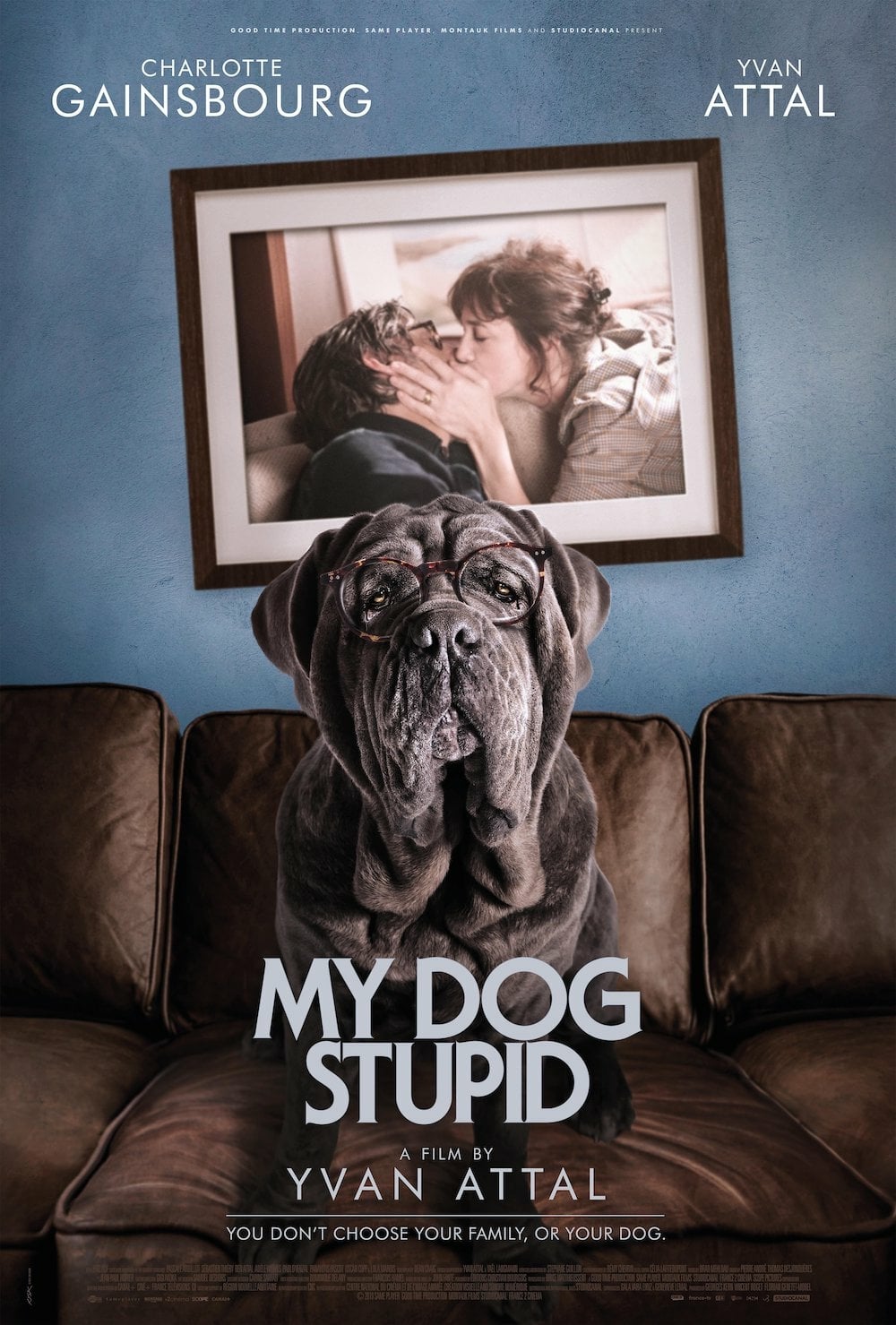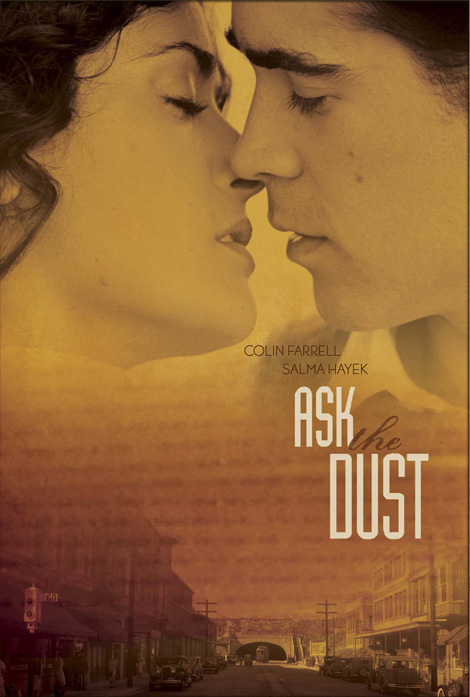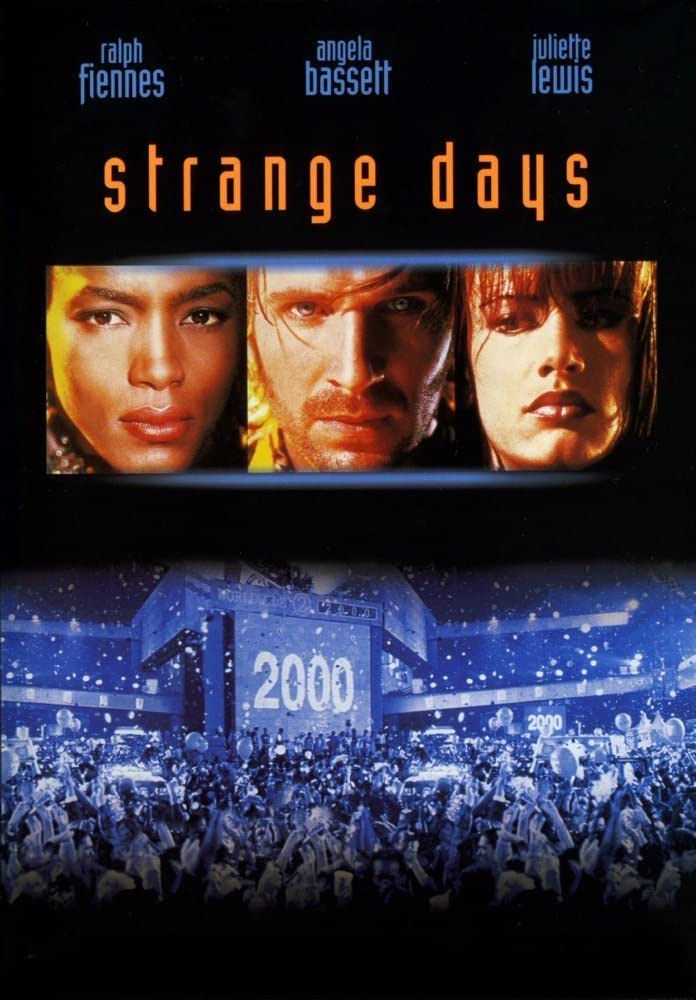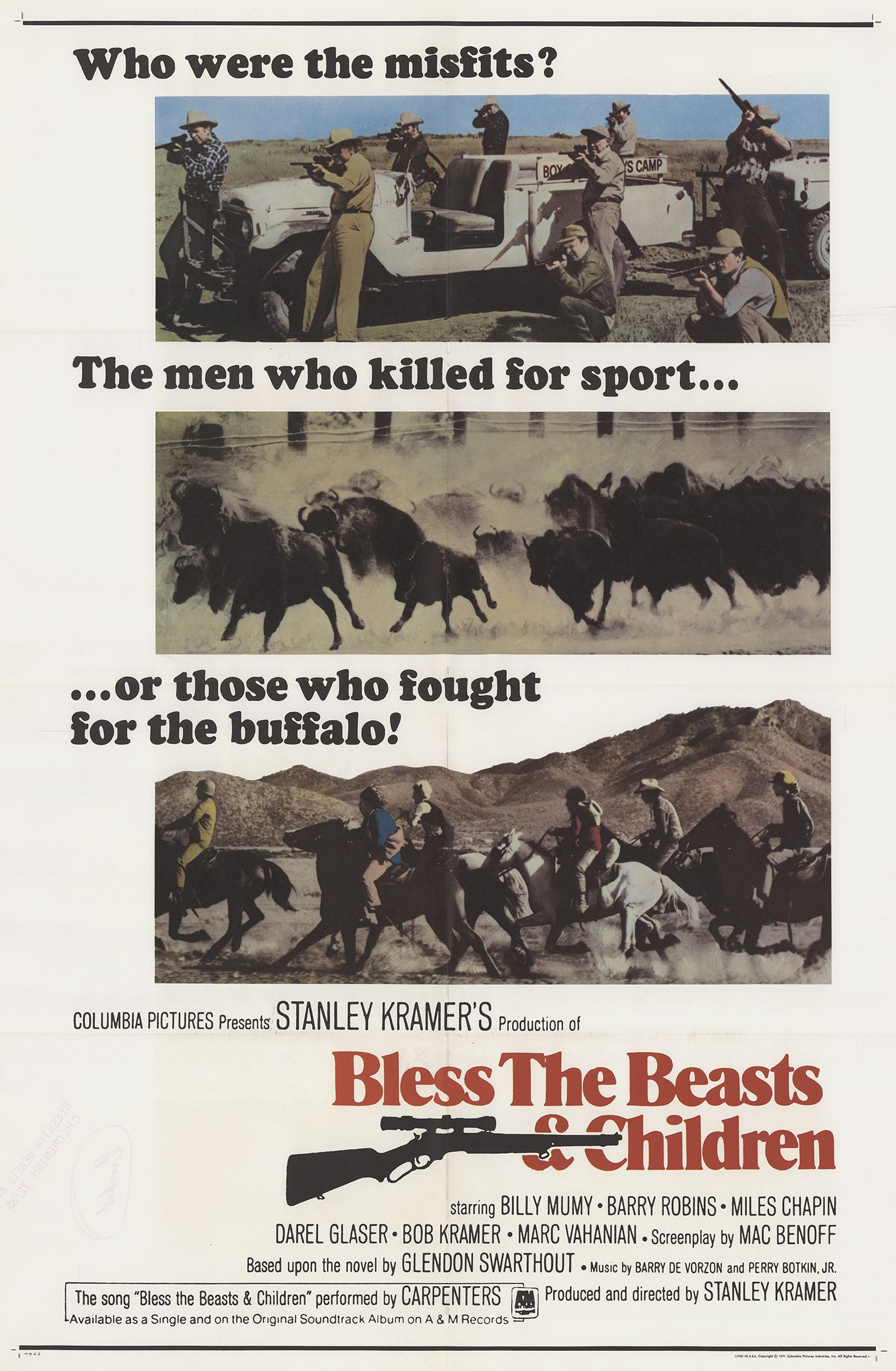I Wake Up Streaming | January 2023
Movies
In this edition of “I Wake Up Streaming,” novelist William Boyle rounds up his top streaming picks for the month of January. The column’s name is a play on the 1941 film I Wake Up Screaming, starring Betty Grable, Victor Mature, and Carole Landis. While the film’s title hits a pleasing note of terror and despair, changing that one letter speaks to the joy of discovering new films and rediscovering old favorites, as well as the panic that comes with being overwhelmed by options.
My Dog Stupid (Prime Video, Tubi)

Released in France in late 2019 and then virtually in America during the lockdown summer of 2020 (which is why, I’m supposing, it got kind of lost in the shuffle), Yvan Attal’s adaptation of John Fante’s posthumously published novella is a movie I’d been wanting to see for a while before it popped up on Prime. Fante’s one of my favorite writers, and this is easily the best adaptation of his work. The novella is set in California in the 1970s and it finds Henry Molise, a thinly veiled version of Fante himself, former accomplished novelist turned hack screenwriter, living on Point Dume with his family—his wife of twenty-five years and their four grown, spoiled children—in a beautiful house full of drama and rage. When a large Akita shows up on their property and inserts himself into their lives, things come to a head and the children begin (finally) leaving the house one at a time. Attal’s version is set in contemporary France, so the cultural and historical atmospheres are different, but—aside from that—the film is very faithful to the source material. Henry Molise becomes Henri Mohen (played by Attal), and his wife Cécile is portrayed by the great Charlotte Gainsbourg, Attal’s spouse in real life. In the novella, Henry’s wife is named Harriet, a rather one-dimensional foil amid the turmoil engulfing them. Gainsbourg’s performance gives Cécile much more depth, and her character has a compelling backstory and narrative throughline in the present. The dog, Stupid, is not an Akita here but a Neapolitan mastiff—he’s enormous and melancholy and funny, a true scene-stealer. Many of Fante’s best lines and situations remain intact. Attal manages to capture Fante’s tone and voice, a truly difficult thing to achieve (even more so in translation). The ability to move between humor and heartbreak is key. It’s something that the three other major Fante adaptations (Full of Life, Wait Until Spring, Bandini, and Ask the Dust) don’t pull off in equal measure. The brilliant performances by Attal and Gainsbourg anchor the picture. Movies about writers are often a tough sell—I can’t think of one in recent memory quite as effective as this. In so many ways, though the worlds portrayed in the movies are very different, I was put in mind of Barbet Schroeder’s Barfly, penned by Charles Bukowski. Fante was Bukowski’s hero, and Bukowski was the reason a whole generation of writers and readers discovered Fante’s work. What appealed to Bukowski about Fante’s writing was his blunt honesty, his ferocious humor, and his voice full of pain and love and terror and desperation and yearning. Attal manages to get that energy across onscreen in My Dog Stupid. Also, it features a killer score by Brad Mehldau (including a solo piano rendition of Radiohead’s “Paranoid Android” that drifts in and out of the proceedings).
Ask the Dust (STARZ)

Let’s make it a John Fante double feature. Robert Towne’s much-maligned adaptation of one of my three or four favorite novels of all time, Fante’s Ask the Dust, is better than its reputation suggests, though it doesn’t fully capture the book’s magic. It’s difficult to get Fante’s passion and voice and humor just right (My Dog Stupid is more successful on that front), but it somewhat works here—I enjoyed the movie this time around, after not thinking highly of it back when it was released in 2006. Colin Farrell plays Arturo Bandini. Bandini is Fante’s major character (and most prominent alter ego) across four novels: Wait Until Spring, Bandini; Ask the Dust; Dreams of Bunker Hill; and The Road to Los Angeles. He’s the son of Italian immigrants—his father a bricklayer and his mother a saint—and was raised in Boulder, Colorado. In Ask the Dust, it’s the 1930s and Bandini has left Colorado and come to Los Angeles to make his mark as a writer. He’s living in a cheap rooming house, but his money’s run out. He corresponds with H. L. Mencken, who has published one of his stories, “The Little Dog Laughed,” in The American Mercury. (Fante was indeed published by Mencken and had an ongoing correspondence with him.) He’s got a William Burroughs-esque neighbor in the rooming house named Hellfrick, played by Donald Sutherland. Bandini meets a waitress, Camilla Lopez (Salma Hayek), at a dive joint where he stops to get coffee with his last nickel. The milk Camilla gives him is curdled, and he treats her cruelly and leaves. When Bandini’s up against the ropes, behind on rent and starving and reduced to stealing milk, a check comes in from Mencken, who wants to publish his latest letter as a story, and he’s suddenly flush. He pursues Camilla, and their relationship is the heart of the book. An Italian-American man and a Mexican-American woman caught up in the dark abyss of Depression-era L.A. The glitz and glamour side by side with the destitution, the human struggle on full display. The prejudices. The ugliness of humanity. The beauty. Bandini and Camilla embark on a strange and passionate and combative love affair. What works in the book doesn’t quite transfer to the movie somehow, but the great Towne yearned to tell this classic L.A. story and his intentions were pure, if occasionally misguided. His evocation of Los Angeles in the ’30s is stunning—he filmed in Cape Town, a solid stand-in for prewar L.A. The noir atmospherics are the real draw. If this movie was made now, it would have that CGI-infested texture that plagues many such contemporary period pieces. Instead, we have an approximation of L.A. that feels authentic and is infused with killer details. Caleb Deschanel’s cinematography is gorgeous. Farrell and Hayek give good performances, though both are far from their best work (I’ve always liked Farrell, but he seems to have hit his peak in 2022 with his varied excellent performances in The Banshees of Inisherin, After Yang, Thirteen Lives, and The Batman). That said, they’re both breathtaking, hearkening back to movie stars of the classic era—Armond White compares them to Tyrone Power and Katy Jurado. It’s not a movie that works on every level, but it’s worth giving a shot if you’ve never seen it or worth revisiting if you have and thought it missed the mark. More than that, though, seek out Fante’s book if you’ve never read it.
Strange Days (HBO Max)

I can vividly remember going to see Strange Days the afternoon it opened in 1995 at the Loew’s Oriental back in my neighborhood. Since it was Kathryn Bigelow’s follow-up to Point Break (a movie I’d watched obsessively) and was co-written by a pre-Titanic James Cameron, I’d venture to guess that it was my most anticipated movie that year. I remember loving it in the theater. I had massive crushes on Juliette Lewis and Angela Bassett beforehand and this only cemented them. When it came out on VHS, I rented it and revisited it two or three times in ’96 and ’97, but I hadn’t gone back to it since then. In the intervening years, it’s become difficult to see unless you catch a rare screening or have it on DVD or VHS. When I saw folks on Twitter mentioning that it had popped up on HBO Max (though, apparently, in the wrong aspect ratio), I dove right in. It was a hell of a good first movie of 2023. Held up beautifully. Even better than I remembered. The movie is set in the last days of 1999. Ralph Fiennes plays Lenny Nero, an ex-cop turned street hustler, who sells people’s memories—recorded using a lightweight rig that attaches to the head—so that others might live out their deepest and darkest fantasies. Want to rob a store? There’s a disc for that. Be a woman showering with another woman? There’s a disc for that. Lost your legs and want to experience running on the beach again? Got a disc for that, too. The real draw is that you not only see what the person saw but you feel what they felt—orgasmic pleasure, pain, fear, you name it. Of course, this tech gets misappropriated by a sadistic killer. But that’s just one thread in a story set in a crumbling L.A. at the turn of the century. Bassett plays Lenny’s faithful friend Mace, and Lewis is his ex, Faith, a singer who’s taken up with skeezy record producer Philo (Michael Wincott). Philo’s star client, Jeriko One (Glenn Plummer), a leader in the Black community, has been murdered. There’s also private dick Max, Lenny’s best pal, played by an extra creepy Tom Sizemore, and there are two psycho cops (Vincent D’Onofrio and William Fichtner) hunting a disc that prostitute Iris has delivered to Lenny. It’s a sprawling and epic movie. An apocalyptic, paranoid cyberpunk masterpiece. No one films action like Bigelow. Electric at every turn. We see a very different L.A. than Fante’s. You would think that a movie made in 1995 and set in the near-future of 1999—ostensibly inspired by the savage beating of Rodney King by L.A. police and the riots that followed—would feel somehow dated, but it feels more relevant and prescient and visceral than ever. Bigelow’s best?
Bless the Beasts & Children (Tubi)

I watched this after listening to the new episode of Kier-La Janisse’s excellent podcast A Song from the Heart Beats the Devil Every Time. I’ve read and loved Glendon Swarthout’s The Shootist and The Homesman—and seen the movies, of course—but somehow never knew about Bless the Beasts & Children. The book has sold millions of copies and was adapted by Stanley Kramer (Guess Who’s Coming to Dinner, Judgment at Nuremberg, The Defiant Ones, Inherit the Wind) in 1971. I just ordered the book, and the movie is on Tubi—it’s a ’70s coming-of-age story about how awful people are and what it means to be an outcast kid trying to do the right thing in a sea of shittiness. The plot can be summed up succinctly: a group of troubled and privileged boys from across the country have been sent to a camp out West where they will be transformed into cowboys. Instead, the misfits at the camp unite. When they discover a nearby event where buffaloes are herded together, penned in, and shot for sport, they decide to do something about it. The film is framed around their journey to free and save the buffaloes—alternating between flashbacks to the boys’ lives before they were sent to camp and their strained days at camp. They’re outcasts in their families and in society. Rejects. They scoff at macho posturing. The movie fundamentally functions as an indictment of the corrupt and ugly soul of America (and humanity in general). There’s a nice streak of dark humor throughout. I might be stretching it a bit, but I think it feels like a cross between Easy Rider and Bad News Bears with the heart of an early-’70s revisionist Western and some horror DNA. Great soundtrack too, featuring the classic Carpenters title song and Barry De Vorzan and Perry Botkin Jr.’s beautiful “Down the Line.”
William Boyle is the author of the novels Gravesend, The Lonely Witness, A Friend Is a Gift You Give Yourself, City of Margins, and Shoot the Moonlight Out, all available from Pegasus Crime. His novella Everything Is Broken was published in Southwest Review Volume 104, numbers 1–4. His website is williammichaelboyle.com.
More Movies


